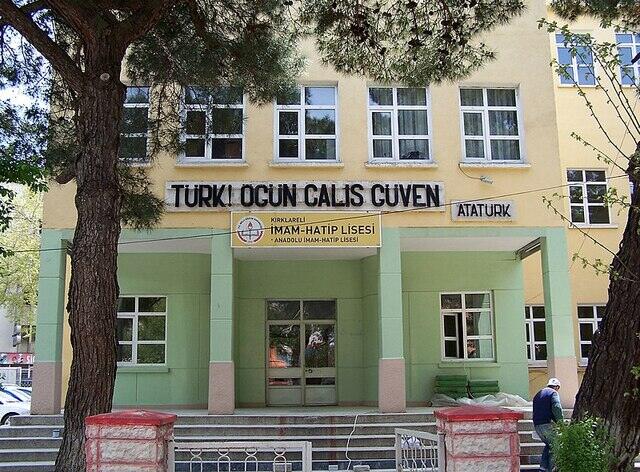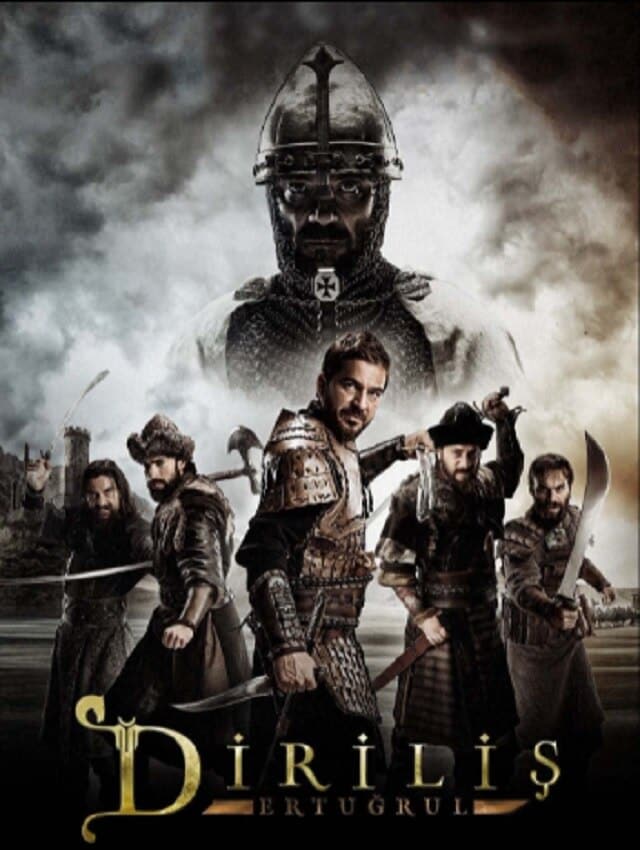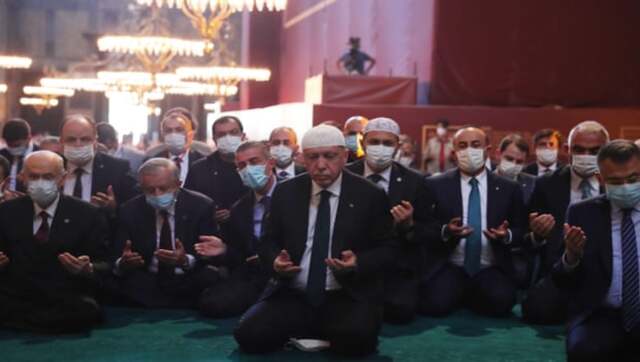Imam Hatip Schools
Of particular interest is the manner in which Erdogan is harnessing the soft-power appeal at home and abroad. Domestically, the Imam Hatip school can be a good example. A secondary education institution, the Imam Hatip school was established during the middle of the last century, under the old Ottoman objective of raising ‘good Muslims’. One of the notable students of this school is President Erdogan himself, and, to leverage his mission of a new Turkey, he has chosen Imam Hatip school as the rallying point. As a result Turkey had about 5,138 (from around 400 before Erdogan) Imam Hatip schools (as of 2019), influencing no less than 1.3 million students, mostly along the Anatolian region which remains the largest region with big tracts of rural and religious population, far away from the secular modernised ‘European’ Turkey. Imam Hatip schools today not only produce imams but are also on a path to make the country more ‘ Islamic’. Buoyed by its success and support among the Islamic population, there was a time in 2014 when authorities – a section of the society suspected – had briefly toyed with the idea of converting all schools of Turkey to Imam Hatip schools. If Erdogan wins the 2023 elections, that could be an area to watch out for.
[caption id=“attachment_10972611” align=“alignnone” width=“640”]  Imam Hatip School in in Kırklareli, Turkey. Wikimedia Commons/ Darwinek[/caption]
Tool ‘Ertugrul’ and beyond
What has however been a runaway success without a shadow of doubt is Turkey’s projection of Islamic soft-power internationally. The one name that dominates most of the space there is Dirilis: Ertugrul (Resurrection: Ertugrul). Ertugrul, and subsequent Turkish TV shows propagating Turkish version of Islamism have been the showstoppers of Turkey’s catwalk in the Islamic world. Turkish dramas are now at the top of foreign language shows; they score above Korean or Hindi pop-dramas. They have found a major base among the Middle Eastern crowd, the central Asians or even among the Balkans. Such has been the influence of Ertugrul’s soft-power, that this one show has apparently managed to prompt an entire nation like Pakistan to reassess its identity and traditional ties with Saudi Arabia to consider reshaping their crisis-ridden national character along Turkish lines. The average Pakistani, who was an ’Arab’ till about 2010 now calls himself ‘Turkish’.
[caption id=“attachment_10972711” align=“alignnone” width=“640”]  Image courtesy: Imdb[/caption]
Turkish Dramas join hands with Bollywood
To consider a few actors playing parts in a drama to be more effective than the Chinese Army knocking at Ladakh might sound comical to many. But if the same picture makes one think “Why Turkey; why not China?”, then that gives us a reason to explore an area that is perhaps even softer than India’s borders: India’s identity. That is the area where an Ottoman rerun can hit India more overwhelmingly than when China tries to salami slice. Because frankly, China’s continuous aggression at our borders – taxing though it is – has the effect of the nation rallying behind its army and leadership. A visible external enemy unites.
It is the invisibility factor that makes cultural imperialism a tougher enemy. India, being a melting pot, already possesses an identity crisis of epic proportions. Melting pots remain a colourful buffet that is a mix of culture, legacy, religion, philosophy, art etc – an incredible assortment no doubts, but the same assortment prevents consolidation. In the bargain, the more universalist culture takes over (like Atlanticist West Europe took over the brief but vibrant Mittel Europa post 1990s). And a universalist culture like Islam has been at it for centuries now with no signs of giving up.
Impact Shorts
More ShortsThis became evident during the 80s, when Saudi – alarmed at the 1979 Iran Revolution – went into a Wahhabism spreading frenzy. That was the time of further ossification of Islam among the Muslim population of the subcontinent; their dress, language, emulation of religious practices began changing, adding to the pre-existing ‘theory of distance’, or ‘return to purity’ codes. This explosion of Wahhabisation in the Sunni world is the reason behind Kashmir terrorism of the 90s, Afghan jihad, the Taliban, ISI and Pakistan’s use of terrorism as its foreign policy tool, and a host of other maladies that has riddled the subcontinent.
While Wahhabi consolidation was in full swing, one of the major players that prevented a reciprocal consolidation among the Indic population was none other than Bollywood. Contrary to what many think, Bollywood is not India’s ‘soft-power’ projector to the world, it serves more as a domestic gaslighting agency, a soft grooming-gang if you may – one that has been carefully crafted to keep the subcontinent permeable to institutionalised Marxism, casteism, religious conversion – anything that prevents a coalescing of an Indic identity.
Consider these Turkish dramas to be Bollywood 2.0. A more focussed initiative, dedicated to the cause of elevating Islamic soft appeal to stellar levels. While the response to these shows among the relatively undecided Muslims of India has been phenomenal, Turkish dramas have even taken large sections of the deracinated urban crowd – that earlier used Bollywood brand of secularism as an identification badge – by storm.
ROI and beyond
This is a low investment high return venture. To Ankara, it does not cost much to swamp the subcontinent with TV and web series, but it makes a tremendous geopolitical impact. With Mohammed Bin Salman trying to modernise KSA, there is bound to be a gap that Wahhabism leaves behind in the Sunni world. Capitalising on that could be Turkey’s realpolitik master move. While Turkey’s regional priorities are from the rulebook of Selim I, if a few web series’ manage to crack the code and refill the vacuum that would be if Wahhabism ebbs along distal geographies (like India or Myanmar), it could propel Turkey as a bona fide leader in the minds of millions of Sunnis worldwide.
The ground is receptive too. The Indian Muslims have sentimental ties with two old empires: the Mughals (subcontinental nature), and the Ottomans (MK Gandhi, Khilafat, and also the fabled Eurasian Islamic ‘superpower’). A carefully curated appeal that is loaded with regal paraphernalia and rich hues, sans the rigid and fairly bleak desert culture that Wahhabism represents, is bound to find blanket acceptance among a postmodern café and pub hopping crowd. Ankara can then influence narrative – Kashmir, Rohingyas, or local elections – using that as a fulcrum.
Then there is the financial aspect. Wahhabism did not spread exclusively riding on state funds. There were thousands of private players – individuals, agencies, and institutions scattered around the world, that pumped in astronomical sums of money to promote it. Some of these sponsors were genuine about a global Islamic takeover, while some (mostly Western agencies) remained focused on destabilising geographies wherever it suited their agenda. KSA bowing out of the scene might open that window for Erdogan tomorrow where Turkey began attracting those investors, and turn into the unrivalled power-center that channeled finances as well as the soft and hard appeal of Islam.
As far as India is concerned – a weak will is the first casualty in moments of crisis. India is yet to fix its identity even after 75 years. We still have not decided if we are Aryans, South Asians, Indic, Vedic etc. We sure realise that a common necessity of resistance to an external threat is a great binder, but our needle has remained stuck on China with zero focus on our internal weakness.
As long as stories of our civilization remain forced under the carpet, it would not take much for a universalist, expansionist agenda to dazzle us from our mobile or TV screen. And Turkey – high on an imperial rerun – is only going to get bolder.
The author is a geopolitical enthusiast and the author of Journey Dog Tales, The Puppeteer, and A Matter of Greed. He tweets at heartland_ari This is the second of a two-part series on the analysis of Turkey’s expansionist tendencies. Read the first part here Read all the Latest News , Trending News , Cricket News , Bollywood News , India News and Entertainment News here. Follow us on Facebook, Twitter and Instagram.


)

)
)
)
)
)
)
)
)



